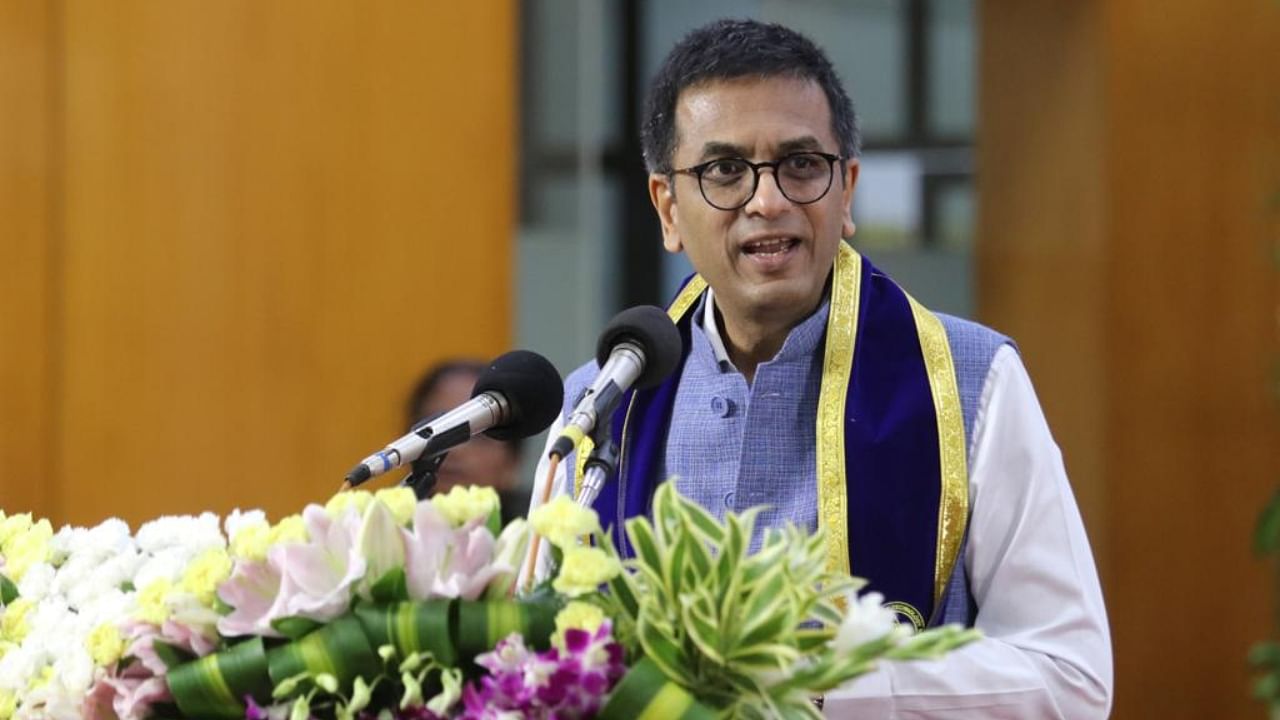
Contending that artificial intelligence (AI) represents not just a new frontier but a rapidly evolving one, Chief Justice of India Justice D Y Chandrachud on Saturday advocated the need for ensuring that such technologies don’t create fear in the minds of users as they could directly impact their ability in expressing thoughts in a “free and open” manner.
In his address at the 60th convocation ceremony of the prestigious Indian Institute of Technology-Madras (IIT-M) here, the CJI termed technology as a freedom enhancing source and exhorted graduating students to find out ambit of opportunities for “many people in India” who cannot effectively exercise their freedom due to lack of access to required resources.
Underlining that technology enables “freedom and human rights” of every individual, justice Chandrachud said those who create technology and tools should know the “values” they represent, the context in which they are deployed and their “affordances”. Identifying climate change as one issue that could negatively impact effective enjoyment of a variety of human rights like water, food, health, and sanitation, justice Chandrachud pushed the need for development of resilient technologies to tackle the challenge.
During the course of his speech, the CJI spoke how the Supreme Court made effective use of technology during the Covid-19 pandemic to conduct 43 million hearings online and the tele-law service which helped marginalised to get legal aid.
Talking about his personal fascination for AI, especially the image generating software, justice Chandrachud said he is also cognizant of its potential misuse to create deep fakes with an intention to “mislead, threaten, or bully” individuals. The challenges before technology creators is to come out with solutions to curb their “misuse” for harmful purposes even as people enjoy benefits of such technology, he added.
“Technology should not in any way create a fear in the mind of users of online abuse or harassment. Such fear directly impacts our ability to express our thoughts in a free and open manner. Another significant impact of AI is its potential to perpetuate and amplify discrimination and undermine the right to equal treatment,” the CJI said in his speech.
He also said many AI systems have been shown to exhibit bias decision making based on data inputs that reflect societal prejudices and pointed out that AI recruitment tools deployed by firms favoured men over women because the tools were trained on profiles of successful employees who for gendered reasons happened to be predominantly male.
“In this way data driven systems can perpetuate biases and marginalized the social control mechanisms that govern human behaviour. As we look to the future, we should look at science and technology as a significant means to human development,” he said.
Contending that while electronic communications undoubtedly represent the values of communication and collaboration, the CJI said they also create the possibility of mass surveillance of our most personal and intimate details and ideas.
“Today, can you think of sending a message to another person without thinking about privacy and confidentiality. We all want our messages to me end to end encrypted. This demonstrates how every technology creates new affordances which in turn modify human behaviour and lead to further technological and legal developments,” he said, adding that every new technology enables new behaviours from citizens, private companies and governments alike.